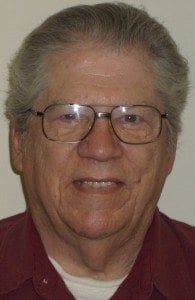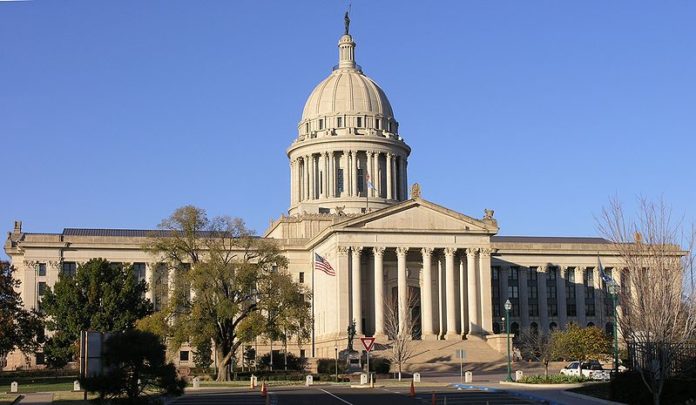BY KENNETH WELLS
 With only days remaining in the 2015 legislative session, our representatives’ failure to negotiate a legitimate budget for Fiscal Year 2015-16 is baffling.
With only days remaining in the 2015 legislative session, our representatives’ failure to negotiate a legitimate budget for Fiscal Year 2015-16 is baffling.
So far, all they have even considered is to raid Oklahoma’s Rainy Day Fund, state agencies’ Revolving Funds, the state Unclaimed Property Fund, and rework the formula for the County Apportionment Fund.
Using these funds is extremely sloppy financial management and budgeting. Two of the four funds, County Apportionment [developed from motor vehicle taxes] and Unclaimed Property [monies held in trust while owners are located] are fluid funds.
Attempting to balance a budget with these dollars is selling a “pie in the sky” daydream. That same daydream saw Oklahoma running out of money while selling tax cuts over the last six years!
As reported by M. Scott Carter of Oklahoma Watch, “Oklahoma Rep. Earl Sears, R-Bartlesville, indicated that these four funds would produce over half of the budget’s $611 million projected shortfall and will definitely be used in the budgeting process.”
Sears also indicated that the remainder of the shortfall would be gained by an approximate 7.25% cut in most state agency budgets.
By revamping the way counties receive funds from Oklahoma‘s $740 million-plus Apportionment Fund [motor vehicle taxes] from an annual percentage to an annual fixed amount, Oklahoma’s government is “allowed” to reduce funds for repairing and replacing county roads and bridges. Instead, those dollars will now be used to balance the 2015-16 budget.
Oklahoma State Treasurer Ken Miller opposes the raid on the Unclaimed Property Fund because those dollars belong to individual Oklahomans the agency is trying to locate. The money comes in and goes out continually with no set schedule of distributed amounts or when unclaimed monies are received.
When expectations for these funds fall short, one can only imagine how much and by what percentage agency budgets will be reduced even more. Any more cuts to health and education will only deepen the social services’ inequality Oklahomans are experiencing. [Forty percent of Oklahomans are experiencing income levels at 200% below the federal poverty level of $24,250 for a family of four – $11,770 if single.]
The quarter-percent tax cut scheduled to take effect next fiscal year – instrumental in creating the budget crisis – was not passed by a “super majority” in the Legislature. Thus, it only seems reasonable that it would not take a “super majority” to repeal it.
We have been told that to repeal will raise our taxes. Not the case. What that “dollar-babble” does show us is how Republican legislators have been able to shift the perspective of Oklahoma’s citizens, causing them to believe that lower taxes solve everyone’s problems and create well paying jobs.
Poorly contrived in part, the Oklahoma Constitution forces state and local government agencies to function on borrowed money. When the economy is on a sound basis and people have money to spend and oil and gas production is thriving, Oklahoma’s debts are paid and life is good. What is “wrong with that picture” is that any government that relies heavily on sales taxes is in for a rollercoaster ride when trying to manage a budget.
If one source of income is interrupted, the budget collapses. When that occurs, the first category looked at is social services [health and education], further widening the inequality divide of our citizenry.
Because of the dedication of the teachers, education is scraping by.
Most baffling within Oklahoma’s social services safety net is why Republicans adamantly refuse to expand Medicaid. The Oklahoma Policy Institute’s Editorial of the Week, quoted by Teresa Meinders Burkett of the Tulsa World, was priceless: “To some, the choice to accept Medicaid expansion seems obvious. For those without health benefits, who are so sick they will wait hours in the emergency room for a temporary patch for a long term problem, an illness is every bit as much a personal disaster as a tornado that rips apart an uninsured home. Our state is quick to call for federal help after a tornado roars through. How is the personal disaster of a heart attack or a cancer diagnosis any different when it comes to accepting federal dollars that are available?”
– Kenneth Wells lives in Ratliff City, OK, and is a regular contributor to The Oklahoma Observer. His essays appear in newspapers across southwestern Oklahoma.







